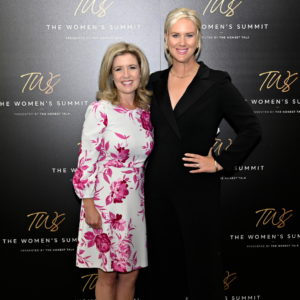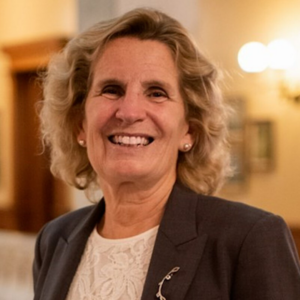Insights for women who want to get on a board
Career17.01.2024
When you were a child, did you want to serve on a corporate board when you grew up? We didn’t think so!
Our podcast guest Jennifer Tory, a corporate director and former RBC Chief Administrative Officer, says, “fast-forward to adulthood, and it’s something that interests many women. That very lack of visibility is part of the problem — while everybody knows how to become a doctor or a lawyer, it’s harder to understand how to join a board.”
That’s part of the reason why The Honest Talk has partnered with WGOB (Women Get On Board).
We want to help demystify the process of board membership and give you the tools and the information you need to work toward this personally and professionally impactful goal.
If you’re looking for board opportunities, here’s some advice from Jennifer and a few of our other guests on The Honest Talk podcast.
How do you get a position on a board?
Jennifer Tory remains one of the most powerful women in corporate Canada, and has done a lot to empower other women, helping them succeed in their careers. Here are her recommendations for women interested in serving on a board:
- Be proactive. “Most firms now have people whose responsibility it is to find more women for board opportunities. Don’t wait for them to reach out to you.”
Jennifer recommends proactively reaching out to those firms to understand what they’re looking for. “They will help women understand what they would need to do to enhance their competitiveness for boards. The first message they’ll give you, depending on your experience, is sometimes to start a little smaller. And then once you have one public company, it will help you get the next one, and so on.” - Build a strong network. “Quite honestly, I haven’t had a lot of reach outs from recruitment firms. I’ve had reach outs from my network, from executives I knew before, or chairs of boards,” says Jennifer.
- Ask other women on boards to keep you in mind for upcoming board positions. “There might come an opportunity where that board is looking for additional women, and you could have someone sponsor you for a board seat,” says Jennifer. “There are still many opportunities where boards have just one or two women, and so they’re always looking. They’re constantly looking now.”
Is it okay to be invited to join a board just because you’re a woman?
Katie Taylor was chair of the board at RBC — the first woman to hold that role at a major Canadian bank — and she is now Chancellor of York University.
“Women often call me and say, ‘I’m being asked to join this board and I think they’re only calling me because I’m a woman.’ My advice to them was, okay, well, then take that board. And your next job is to make sure that the next director and the next director after that is also a woman so that you’re moving the organization along a continuum.”
Being a woman is a positive.
“When I think back on my board work, I think I was chosen in almost every case on account of the fact that I was a woman. It didn’t hurt that I was a high-level executive in a global company. That was probably the key capacity. But being a woman was something that all of these boards were also looking for,” says Katie. “And I didn’t consider that a negative. I considered it a positive because then I could get onto that board and become a catalyst for even further change.”
Representation matters.
Katie challenges the idea that it’s hard to find suitably qualified women for boards of directors. She believes it is “…a bit disingenuous because when you look at Canada’s largest companies — RBC would be a great example — the representation of women in our largest companies is actually very good.”
Your network is key.
Katie recommends moving outside your network and utilizing other networks, whether professional search firms or associations of professional women on boards with access to a much broader range of names.
Why should women be on boards?
The final word goes to Nicole Verkindt, entrepreneur, angel investor, CBC’s Next Den Dragon alum, and successful CEO. “There is significant data that shows that diverse boards generate more profits. And so to me, that’s the end of the conversation.”











